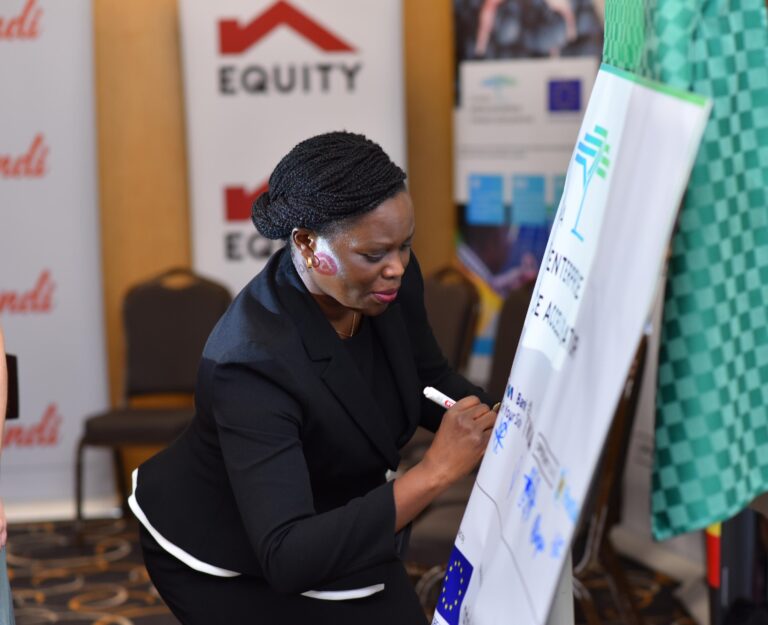
By Joyce Tamale
HABARI DAILY I Kampala, Uganda I As we celebrate the International Labor Day today, we should be cognizant of the fact that thousands of deserving Ugandans are caught up in the web of joblessness.
This is to remind ourselves as policy makers and social workers to do all in our power to create jobs and change this negative narrative.
We should also be reminded of the dignity of work and the tireless efforts of workers need to be appreciated. This year, let us reflect on a growing movement that redefines how work creates not only profit but purpose social entrepreneurship.
By definition, social entrepreneurs are innovators who blend business strategies with social impact. They are driven by a mission to solve some of society’s most pressing challenges such as poverty, unemployment, inequality, access to healthcare and education through innovative, sustainable, and locally rooted solutions.
On Labour Day today, it’s essential to recognize their unique contribution to dignified work and inclusive economic development.
In many communities not only in Uganda but world over, traditional job markets are failing to meet the needs of youth, women, and marginalized populations.
Social entrepreneurship therefore provides a powerful alternative for creating jobs that are not only productive but also meaningful.
From a young woman running a cooperative that trains others in organic farming, to a refugee-turned-entrepreneur making reusable sanitary pads, social enterprises are building local economies from the ground up. These ventures don’t just offer employment, they empower people with skills, resilience, and ownership.
In doing so, they align with the core values of International Labour Day: fairness, opportunity, and workers’ rights.
The International Labour Organization defines “decent work” as work that is productive, delivers a fair income, provides security, social protection, freedom to express concerns, and equal opportunities. Social enterprises align naturally with this vision.
In Uganda, for example, social enterprises are solving local problems while training youth in digital skills, supporting women-led agricultural ventures, and offering financial literacy to under-served groups.
Across Africa, they are filling gaps left by government and large corporations, not by replicating traditional structures, but by building new, inclusive systems rooted in local realities and indigenous knowledge. Importantly, social entrepreneurship promotes a bottom-up approach to development.
It values participation, empowerment, and dignity principles that are often overlooked in traditional employment models. These enterprises are not just about job creation; they are about creating meaningful work that reflects the values, cultures, and aspirations of the people.
In order to grow this movement, the Social Entrepreneurship Forum has brought together over 250 social enterprises in different sectors including; agribusiness, tourism, digital technology, green circular economy, education, health among others to build a network where like-minded enterprises continue to contribute to the economic development of Uganda and create decent employment.
However, despite their promise, social enterprises often face systemic barriers. Many operate in informal or under-regulated environments. They struggle to access financing, policy support, infrastructure, and markets.
The labor they provide though transformative is rarely acknowledged in national employment statistics. Workers within social enterprises often face precarious conditions without adequate social protection.
Therefore, we must recognize the need to invest in the ecosystem that supports social entrepreneurship. Governments, development partners, financial institutions, and the private sector have a role to play in providing flexible and accessible funding for early-stage social enterprises by developing policies and legal frameworks that formally recognize and support social entrepreneurs.
They should also create platforms for knowledge-sharing, mentorship, and skills development and include social entrepreneurship in national employment and development strategies.
As we commemorate this Labour Day, let us challenge ourselves to imagine an economy that prioritizes people over profit. An economy where value is measured not only by GDP or shareholder returns, but by lives improved, communities strengthened, and dignity restored. This is the promise of social entrepreneurship.
We should use this opportunity to redefine what we mean by labor, and recognize the invisible work of community organizing, caregiving, cooperative building, and informal innovation.
It is a call to honor not only the workers in factories, offices, and fields, but also those building enterprises that serve the common good.




